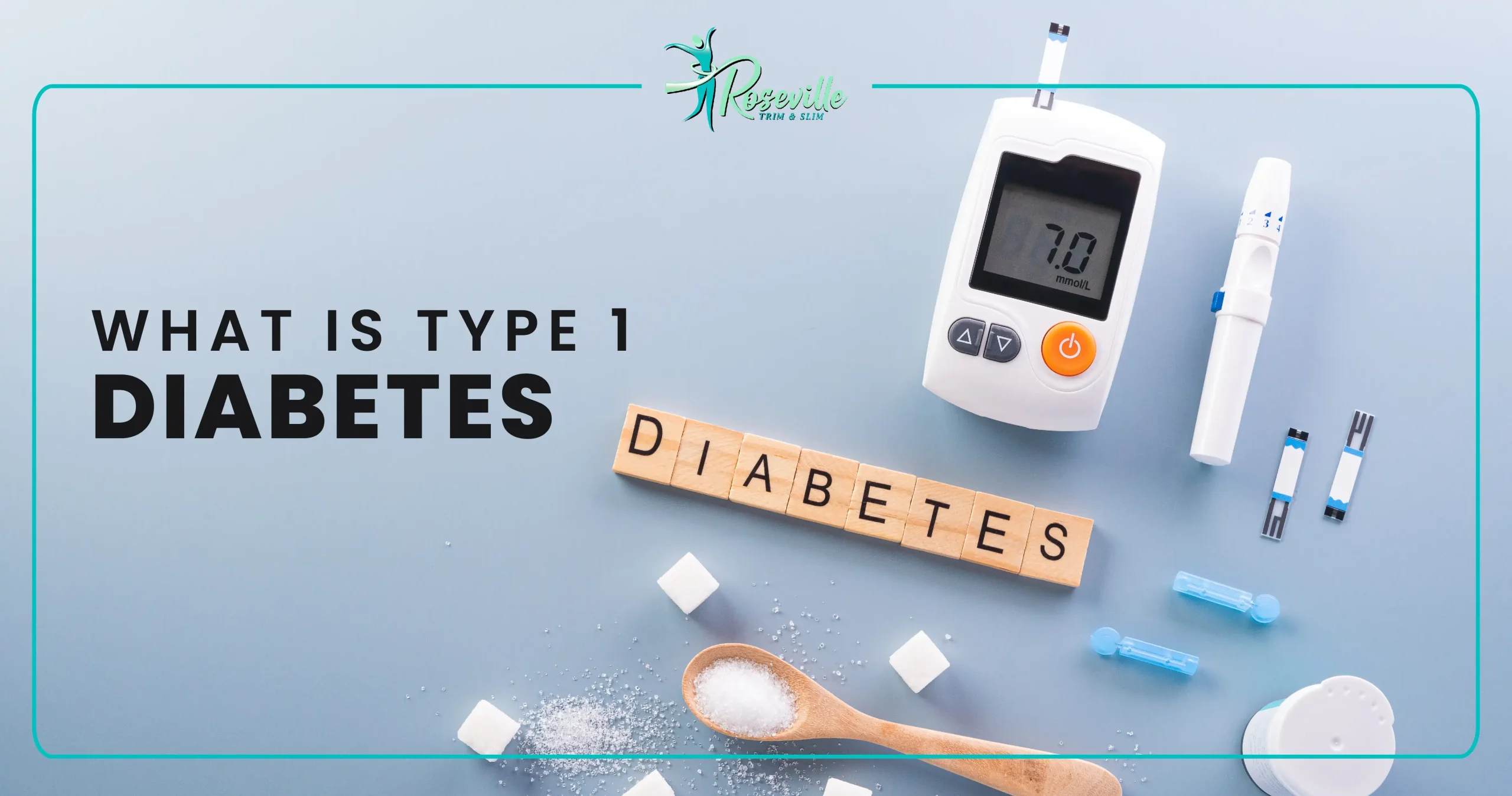A commitment to managing health is a lifetime commitment, but for those suffering from Type Ⅰ diabetes, it adds a little care and caution. Type Ⅰ diabetes is an autoimmune disorder that affects insulin production in the body. It makes daily management of the body a necessity rather than an option.
However, diabetic people have some common questions, such as: What about weight management? Why do people often experience unintentional weight loss before they are diagnosed? How does insulin therapy impact weight gain or loss? Are there any safe ways to lose weight that could be part of the treatment plan, along with medications? Let’s dig in and address this debate on Type Ⅰ diabetes head on.
What Is Type Ⅰ Diabetes?
Type Ⅰ diabetes is an autoimmune disease in which the body mistakenly attacks its insulin-producing cells in the pancreas. Insulin is essential for regulating blood sugar levels by allowing glucose to enter your cells for energy. Without it, blood sugar can rise dangerously high, leading to complications.
Unlike Type Ⅱ diabetes, Type Ⅰ is not caused by lifestyle factors. It usually develops in childhood or adulthood but can occur at any age. People with Type Ⅰ diabetes must take insulin daily, either through injections or an insulin pump, to manage their blood sugar levels.
Common Symptoms and Diagnosis
The early signs of Type Ⅰ diabetes must be recognized. Some of the most common symptoms include:
- Excessive thirst and frequent excretion.
- Unexplained loss of weight.
- Muscle fatigue or weakness.
- Increasing hunger even while eating well.
- Blurred vision.
If a person or anyone you know is undergoing such symptoms, the doctor conducts tests, measuring blood sugar or detecting some antibodies that mark autoimmune activity. Such an early detection will prevent complicated conditions.
Relation between diabetes and weight
One of the surprising symptoms of Type Ⅰ diabetes at diagnosis is unintentional weight loss. This occurs because the body is unable to use glucose for energy due to the lack of insulin, and it begins breaking down fat and muscle instead. While some may see this as a “quick fix” for weight loss, it is dangerous and unsustainable.
Once insulin treatment is initiated, the weight of most patients is stabilized. However, for the type Ⅰ diabetic, maintaining the ideal weight may prove to be quite challenging. Weight is influenced by blood sugar control, the necessity of frequent eating to prevent hypoglycemia, and the effects of insulin therapy.
Type Ⅰ Diabetes self-management tips
For individuals with Type 1 diabetes, weight management requires careful planning and balance. Here are a few strategies:
Eat Balanced Nutrition
A well-balanced diet of whole foods, such as lean proteins, whole grains, fruits, vegetables, and healthy fats, stabilizes blood sugar and promotes good health. Often, carb counting is required to ensure that insulin doses are balanced.
Be Active
Exercise helps increase insulin sensitivity and overall well-being. People with Type Ⅰ diabetes must always monitor their blood sugar levels before and after exercise, as hypoglycemia can occur easily.
Monitor Your Insulin Doses
Obesity may result from the overuse of insulin. Dosages for meals and activity levels can be adjusted with the help of a healthcare provider.
Weight-loss medications and Type Ⅰ Diabetes
Weight-loss drugs are becoming popular due to their efficacy, but are they safe for patients with Type Ⅰ diabetes?
The answer is not clear-cut. Most weight-loss drugs, such as GLP-Ⅰ receptor agonists (e.g., semaglutide), are primarily approved for Type Ⅱ diabetes and obesity. Although some emerging research suggests they may have benefits for Type Ⅰ diabetes, these medications should only be used under medical supervision.
It is also important to note that weight-loss drugs are not a replacement for insulin therapy and healthy lifestyles but can be helpful for some individuals, especially in cases where they are experiencing weight gain from the use of insulin therapy.
Practical strategies for a healthier lifestyle
- Collaborate with a team
Managing Type Ⅰ diabetes and weight requires some external input from an endocrinologist, dietitian, and diabetes educator.
- Maintain consistency
Routine is your best friend when balancing blood sugar and weight. Eating at regular intervals and maintaining an exercise schedule can make a big difference.
- Track progress
Use apps or journals to log meals, blood sugar levels, and physical activity. Patterns in these logs can help guide adjustments to your routine.
- Be kind to yourself
Remember, managing Type Ⅰ diabetes is a marathon, not a sprint. Celebrate small victories, and don’t hesitate to seek support when challenges arise.
Final Thoughts
There are various challenges of living with Type Ⅰ diabetes, but managing your weight doesn’t have to be one of them.
Proper knowledge and support will guide you to manage a healthy weight along with the management of your condition.
In case you decide to use weight-loss medications, it’s important that you talk to your doctor because your health is all about balance, and you can gain that balance if you made the right call.





